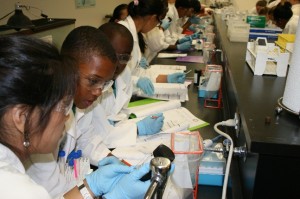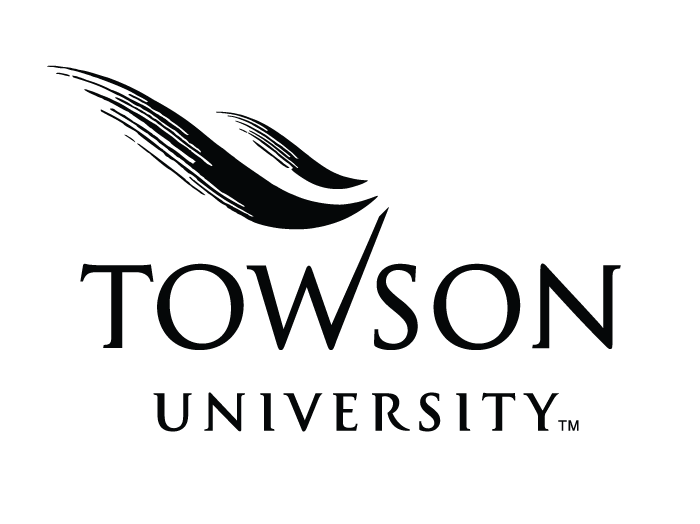 One of Maryland’s premier teacher resources is tucked away among the flashier attractions in Baltimore’s Inner Harbor. The Maryland Loaner Lab (MDLL), a part of the Towson University Center for STEM Excellence, provides a low-profile, much-appreciated services to the state’s middle and high-school science teachers.
One of Maryland’s premier teacher resources is tucked away among the flashier attractions in Baltimore’s Inner Harbor. The Maryland Loaner Lab (MDLL), a part of the Towson University Center for STEM Excellence, provides a low-profile, much-appreciated services to the state’s middle and high-school science teachers.
From its offices in the Columbus Center on Pratt Street, MDLL develops, assembles and maintains eight different laboratory activities—dubbed kits—to qualified classroom teachers. MDLL ships the kits to schools via FedEx, which ensures that teachers and students in all Maryland counties have access to the program.
MDLL also loans lab equipment to middle and high schools, enabling students to gain real-world experience they might otherwise not have had until college.
Directed by Mary Stapleton, Ph.D., and a staff of five, MDLL also offers the monthly lab-skills training sessions that teachers need to use the kits. “If the teachers are far away, we’ll go to them,” says Stapleton, who has conducted the sessions at Eastern Shore and Western Maryland schools.
TU’s Fisher College of Science and Mathematics has supported the Maryland Loaner Lab since 2010, when it stepped up to fund the UM Biotechnology Institute’s Bioscience Education and Outreach Program.
“It’s unusual to see a university support this kind of outreach,” Stapleton adds. “Towson provides us with a solid foundation that enables us to focus more on our mission. These types of partnerships between universities and K-12 education systems are needed to help prepare students for higher education.”
MDLL’s eight cutting-edge kits span a variety of bioscience lab activities, including a DNA extraction lab, a “mystery disease” diagnosis challenge, an AP-level introduction to genetic engineering, and a wildlife forensics lab. All are intended to serve 10 classroom workstations comprising one to four students. MDLL provides teacher manuals, student protocols, equipment, supplies and reagents.
“Teachers love the kits because they’re self-contained,” says Stapleton. “They’re aligned with the Maryland State Department of Education’s Core Learning Goals and the just-adopted Next-Generation Science Standards. Teachers and students enjoy the hands-on approach that encourages inquiry-based learning.”
One biology teacher could scarcely contain her enthusiasm for one of the MDLL kits she’d borrowed. “Dear Dr. Stapleton,” she wrote, “’Mystery of the Crooked Cell’ was not only a big hit with the kids, but also the precursor to the best performance on their end-of-unit assessment. [It] was the best I’ve seen in three years here—no doubt because they had done the procedure themselves!”
MDLL kits or equipment loans serve 10,365 students per year, says Stapleton. “We’re always trying to get the word out about all MDLL has to offer,” she says. “It’s a high-quality, cost-effective program, and we’re continually working to make it better.”
